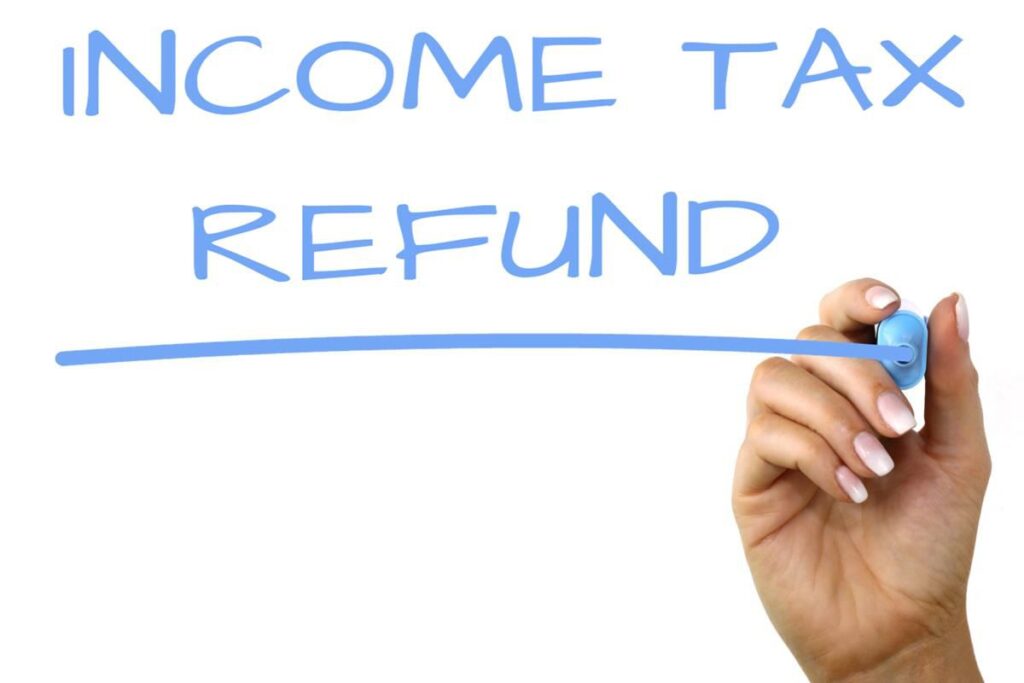The U.S. Department of the Treasury’s Bureau of the Fiscal Service (BFS) is the federal entity that issues tax refunds. It also has the authority to hold back all or part of your refund to repay debts you owe. This is known as an “offset.”
The BFS can seize your refund for one or more of six reasons. Each reason is related to a personal debt owed to state or federal entities or a court-ordered debt. Here’s what they are and what you can do about it.
Key Takeaways
- The BFS can seize some or all of your refund if you owe federal or state back taxes.
- It also can seize your refund if you default on child support or student loan debts.
- Owing your state unemployment compensation can trigger a refund offset.
- You can contact the BFS and IRS if you think a mistake has been made.
You Owe Federal Income Taxes
Your refund can be taken to pay or offset the amount due if you owe back income taxes. Anything that’s left will be refunded as requested on your tax return, either by direct deposit or by check. You should also get a notice from the IRS explaining why the money was withheld.
You can contact the Internal Revenue Service (IRS) if you believe a mistake was made. Call (800) 829-1040. Other tools and resources are available on its website as well.
You Owe State Income Taxes
The feds can also withhold money from your tax refund to cover any unpaid state income taxes.
Your first call should go to the IRS at (800) 829-1040 in this case. Contact your state’s tax authority after you’ve made that call and your options have been explained. Be prepared for a run around on this one.
You Owe State Unemployment Compensation
Your state can ask the U.S. Treasury to offset your tax refund by the amount in dispute if it believes that you collected more in unemployment compensation than you were entitled to receive, either due to outright fraud or a failure to properly report your earnings.
Your first step is again to call the IRS at (800) 829-1040. You should be ready to prove that you rightfully received that unemployment compensation.
E-filing allows you to check the status of your return. This can be helpful in situations where you might be concerned about it being withheld because you can track your return’s progress.
You’ve Defaulted on a Student Loan
The government can seize your tax refund to offset the amount you owe if you’ve defaulted on a federally insured student loan. An exception exists if you qualify for and have applied for loan forgiveness. The Treasury Department must send you advance notice of its intention in this case and provide you with an opportunity to challenge the claim or pay it off before your refund is withheld.
Your state is also authorized to withhold money from your state tax refund for this purpose. The U.S. Department of Education and the guaranty agency that holds your loan also have the authority to order your employer to withhold up to 15% of your disposable income until the loan is paid off.
You Owe Child Support
A state’s child support agency can request that the Treasury Department withhold money from a parent’s tax refund to cover the back payments when they’re delinquent in paying court-ordered child support.
You should receive a pre-offset notice explaining how much is owed in this case, as well as how the offset process works and how to contest the debt. You should also receive an offset notice from the BFS showing how much money was withheld from your refund.
Anyone in this situation should contact their state’s child support agency for further information.
You Owe Spousal Support
An award for spousal support that is part of a child support order can also result in a tax refund offset if the payments are overdue.
You can request your portion of the refund back from the IRS if you filed a joint tax return with your spouse and your refund was offset because of debts belonging only to your spouse. You can file Form 8379: Injured Spouse Allocation to make this claim.
How Do I Know If the IRS Will Take My Refund?
The BFS will likely take your refund If you’re delinquent on any of the abovementioned payments. You should receive an offset notice after you file your tax return.
How Do I Stop the IRS From Taking My Refund?
Your best chance is to ensure that you make payments on the six types of debt for which the BFS will hold a refund. Notify the IRS, then contact the BFS and talk to a debt analyst if you can’t do this.
How Do I Know If the IRS Is Giving Me a Refund?
You should be able to tell when you file your tax return. You should receive a refund if you’ve paid more than you owe unless you meet one of these six reasons that the IRS and BFS can withhold some or all of your refund.
The Bottom Line
You’ll receive a tax refund if you’ve paid more tax than you owe over the year, either through payroll withholding or because you made estimated payments. But the IRS and BFS can withhold your refund to make the payments for you if you have specific debts that you haven’t paid.
It’s best to call the BFS at 1-888-826-3127 if you find yourself in a situation where you think it might hold your refund. The BFS can work with you to set up an installment plan or guide you on the best options for your situation.
